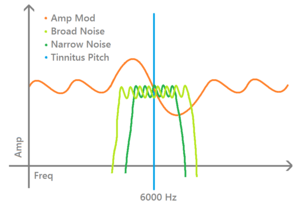Fabrikat
Member
- May 1, 2017
- 416
- Tinnitus Since
- 1973
- Cause of Tinnitus
- Otosclerosis then volume then viral infection
The research does say that the sounds were most effective when around the tinnitus tone so if you have a pure tone tinnitus the best sound will not have any energy to be able to take a notch out of.
Does that mean modulating sounds would be ineffective with pure tone tinnitus or does that mean one would need to boost the volume surrounding the tinnitus frequency?

 Member
Member Manager
Manager